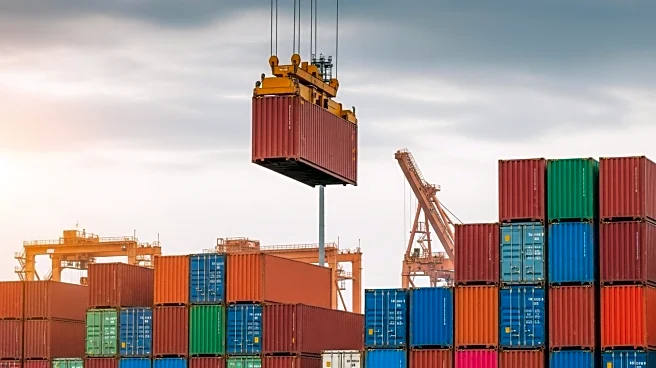What is the story about?
What's Happening?
The Cass Freight Index has reported a decline in freight shipments and expenditures for August. The index, which is considered a reliable indicator of freight volumes and market conditions, showed a 9.3% annual decrease in shipments, with a 1.5% drop compared to July. The expenditures reading also fell by 0.4% annually and 2.8% from July to August. The report highlights a persistent downturn in freight activity, although truckload freight has seen an increase, while less-than-truckload (LTL) volumes have significantly declined. Container and intermodal volumes were up compared to the previous year. The index, which measures changes in North American freight activity and costs, is trending towards another decline in 2025.
Why It's Important?
The decline in freight shipments and expenditures as reported by the Cass Freight Index is significant for the U.S. logistics and transportation sectors. It indicates ongoing challenges in freight activity, which can impact supply chain operations and economic performance. The shift from LTL to truckload freight suggests changes in shipping preferences and cost structures, potentially affecting pricing strategies and operational decisions for logistics companies. The downturn may also influence broader economic indicators, as freight volumes are closely tied to consumer demand and industrial production. Stakeholders in the logistics industry, including shippers and carriers, may need to adapt to these changing dynamics to maintain efficiency and profitability.
What's Next?
The Cass Freight Index suggests that the shipments component is expected to decline further in September, following normal seasonal patterns. This continued downturn may prompt logistics companies to reassess their strategies, focusing on optimizing truckload operations and managing costs effectively. Industry analysts and executives will likely monitor these trends closely to anticipate future market conditions and adjust their business models accordingly. Additionally, potential policy changes or economic shifts could influence freight activity, requiring stakeholders to remain agile in their planning and execution.

















